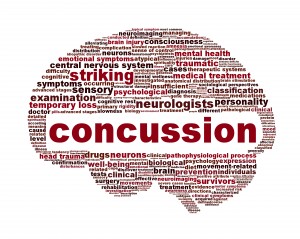-
Health & Wellness
Tuesday Q & A: Risk of sustaining a concussion higher after already having one
DEAR MAYO CLINIC: My daughter, 17, was hit while playing soccer last fall and had a mild concussion. Her doctor says it is okay for her to play again in the spring, but I’m worried. Isn’t she more likely to get another concussion if she’s had one already? Does having had one concussion affect her long-term?
ANSWER: You are wise to be concerned. Every injury to the brain, including a mild concussion, needs to be taken very seriously. That said, as long as all of her concussion symptoms go away, it is likely your daughter can safely return to playing soccer.
It is true that your daughter’s risk of sustaining another concussion is higher after already having one, so you need to be alert to that possibility. At this time, the specific long-term effects of sustaining one concussion are not well-understood. But the likelihood of serious, lasting problems due to a mild concussion is low.
A concussion is a traumatic brain injury that changes the way the brain works. Symptoms of a concussion often include headaches, and sometimes people report trouble with memory, balance, coordination, concentration and judgment. These symptoms are usually temporary.
By definition, all traumatic brain injuries alter brain function. To allow the brain to heal properly, it is crucial to treat concussions carefully and limit activities until symptoms go away. That includes not only physical but also mental activities, such as schoolwork, if these activities cause or increase symptoms.
As symptoms begin to resolve, a step-by-step process of returning to normal activities can follow. That process needs to be tailored to each individual’s situation. And it should always be conducted under the direction of and with close monitoring by a clinician experienced in treating concussions.
Soccer is a high-risk sport for concussions. When your daughter returns to playing soccer, watch for symptoms of another concussion if she receives a forceful blow to her head, neck or upper body. Keep in mind that a person’s head does not have to be hit to sustain a concussion. Any sudden acceleration or deceleration of the head can cause brain injury.
Talk to your daughter's coach about her concussion history. Make sure he or she understands how to spot concussion symptoms. If your daughter shows any of those symptoms, she should get medical attention right away.
Long-term effects of a single concussion on a person’s brain function are not common. Research has shown that, for most people of all ages, the symptoms and effects of one mild concussion resolve completely, and they typically experience no lasting effects.
Evidence is emerging that the cumulative medical effects of multiple concussions may increase the risk for developing degenerative neurological disease later in life for some people. Currently research is underway to follow over a long period of time people who have had concussions. Findings may give doctors a better understanding of the specific effects concussions can have on brain health in the long run.
In your daughter’s situation, as long as she is no longer having any signs or symptoms of a concussion, and her doctor has carefully evaluated her condition to ensure that she can return to athletics, she should be able to play soccer again. But continue to be alert to signs of possible concussion-related problems. If you have any concerns, talk to her doctor right away. — Allen Brown, M.D. , Physical Medicine and Rehabilitation, Mayo Clinic, Rochester, Minn.
Related Articles







